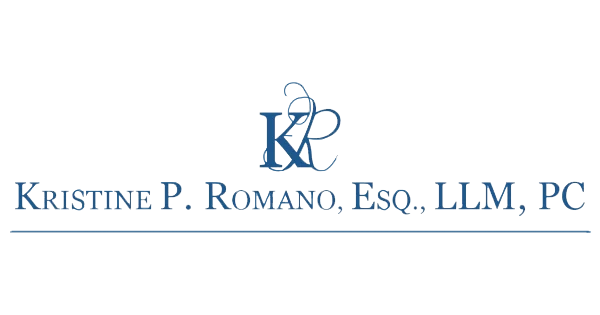Medicaid Trusts Protect Your Wealth from Long-Term Care Costs
Long-term care costs are one of the biggest financial worries for retirees, with costs ranging from $50,000 to $100,000 annually in some locations, as noted in an article from Kiplinger. In Massachusetts the cost usually ranges from $140,000 to $300,000 annually. A Medicaid Asset Protection Trust (MAPT) can offer a solution to safeguard hard-earned assets while ensuring access to essential care through MassHealth. But how do these Trusts work, and are they right for you? In this guide, we’ll explore the key benefits of Medicaid Trusts and how they can secure your financial future.
What Is a Medicaid Asset Protection Trust?
A Medicaid Asset Protection Trust (MAPT) is a legal tool designed to protect assets from being depleted by long-term care costs. By transferring ownership of assets to an Irrevocable Trust, these funds are no longer considered part of your estate for MassHealth (Medicaid) eligibility purposes.
To qualify for MassHealth coverage of long-term care, individuals must meet strict income and asset limits. Without proper planning, families may need to spend down their savings to qualify. A MAPT prevents this by shielding assets from the Medicaid means test, ensuring they remain available for your beneficiaries.
How Does a Medicaid Trust Work?
When you establish a MAPT, you transfer ownership of certain assets—such as savings, investments, or real estate—into the trust. Here’s how the process works:
- Irrevocable Structure: A MAPT must be irrevocable, meaning you relinquish control over the assets placed in the trust. While this may feel daunting, the tradeoff is greater protection for your financial legacy.
- Medicaid Look-Back Period: The trust must be established and funded at least five years before applying for Medicaid. This “look-back” period ensures that assets transferred to the trust are not counted when determining eligibility.
- Trustee Management: A trustee, often a trusted family member or professional, manages the trust. They ensure that assets are used according to the terms set in the trust document.
- Asset Distribution: Assets in the MAPT are distributed to beneficiaries according to your wishes, either during your lifetime or after your passing.
Why Should Natick Residents Consider Medicaid Trusts?
For residents of Natick and surrounding areas, a Medicaid trust can provide several advantages:
- Protect Assets from Long-Term Care Costs: Preserve your savings and property for your loved ones rather than spending them down for care.
- Tax Benefits: Assets in a MAPT are excluded from your taxable estate, offering protection from federal and state estate taxes.
- Control Distribution of Assets: Dictate how and when your beneficiaries receive their inheritance, ensuring your wishes are honored.
- Peace of Mind: Knowing your assets are secure, especially as you age and become more vulnerable to financial predators or incapacity, provides reassurance for you and your family.
Common Questions About Medicaid Trusts
1. Do I Lose Access to My Assets?
Yes, creating a MAPT means giving up direct control of the assets placed in the trust. However, careful planning can ensure your needs are met. For example, income from the trust may be used to support you during retirement.
2. Can I Use a MAPT for My Home?
Yes, your primary residence can be placed in a MAPT. This shields it from Medicaid spend-down requirements, allowing your home to remain a part of your family’s legacy.
3. When Should I Set Up a MAPT?
The best time to establish a MAPT is before the need for long-term care arises. Since the Medicaid look-back period is five years, early planning is essential to maximize protection.
4. Are All Assets Eligible for a MAPT?
Certain assets, such as retirement accounts, may not be eligible for inclusion in a MAPT. Consulting with an experienced estate planning attorney will help determine the best approach for your unique situation.
How to Create a Medicaid Trust in Natick
Creating a Medicaid Asset Protection Trust is a complex process requiring detailed legal knowledge. Working with an experienced estate planning attorney ensures your Trust is set up correctly and complies with all state and federal requirements.
To get started, consider these steps:
- Evaluate Your Needs: Discuss your financial goals and long-term care concerns with your family and an attorney.
- Select a Trustee: Choose a trusted individual or professional to manage the assets in the Trust.
- Understand the Rules: Work closely with your attorney to understand Medicaid’s requirements and how they affect your Trust.
- Plan Ahead: Establishing a MAPT well in advance of needing care maximizes its effectiveness.
Protect Your Legacy with a Medicaid Trust
Medicaid Asset Protection Trusts are powerful tools for safeguarding assets while ensuring access to long-term care. By planning early, families in Natick can avoid the financial strain of care costs and secure a lasting legacy for their loved ones.
At Kristine Romano Law, we guide families through the complexities of MassHealth applications and access to the care their loved ones deserve. Our compassionate team works closely with clients to create personalized strategies that protect assets and provide peace of mind.
Contact us today to learn how a Natick Medicaid Trust can secure your financial future. Let us help you navigate the path to long-term care planning with confidence and clarity.



